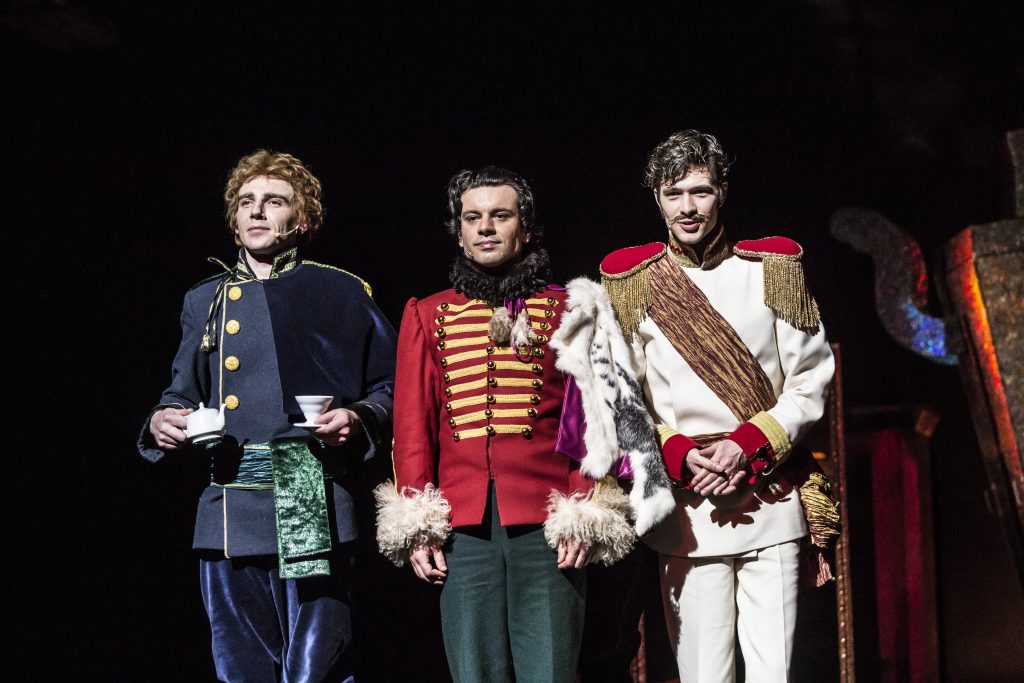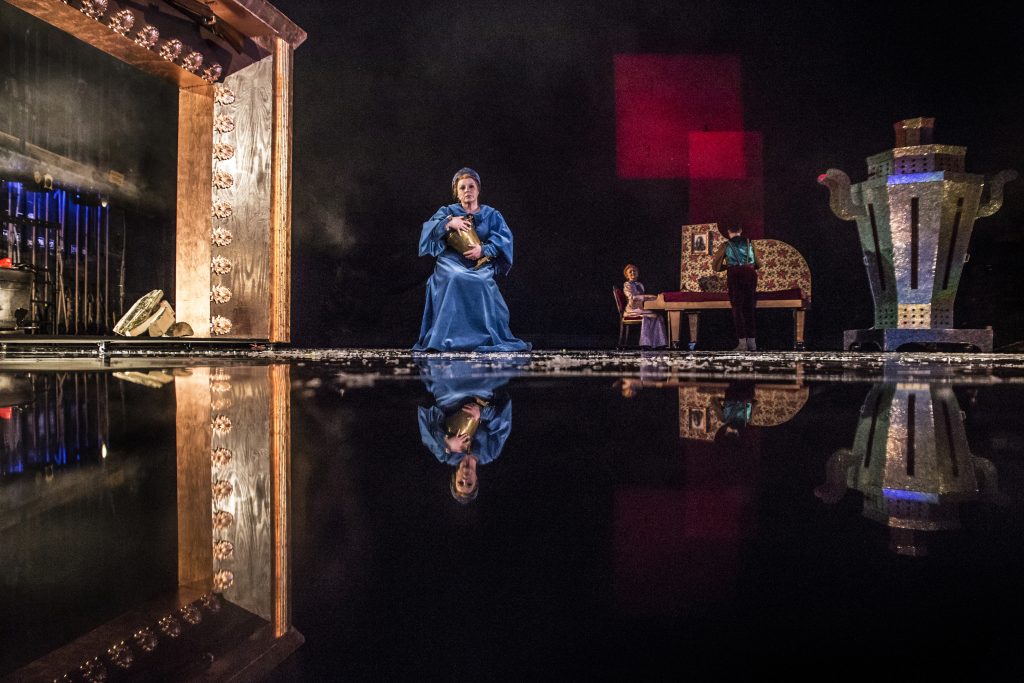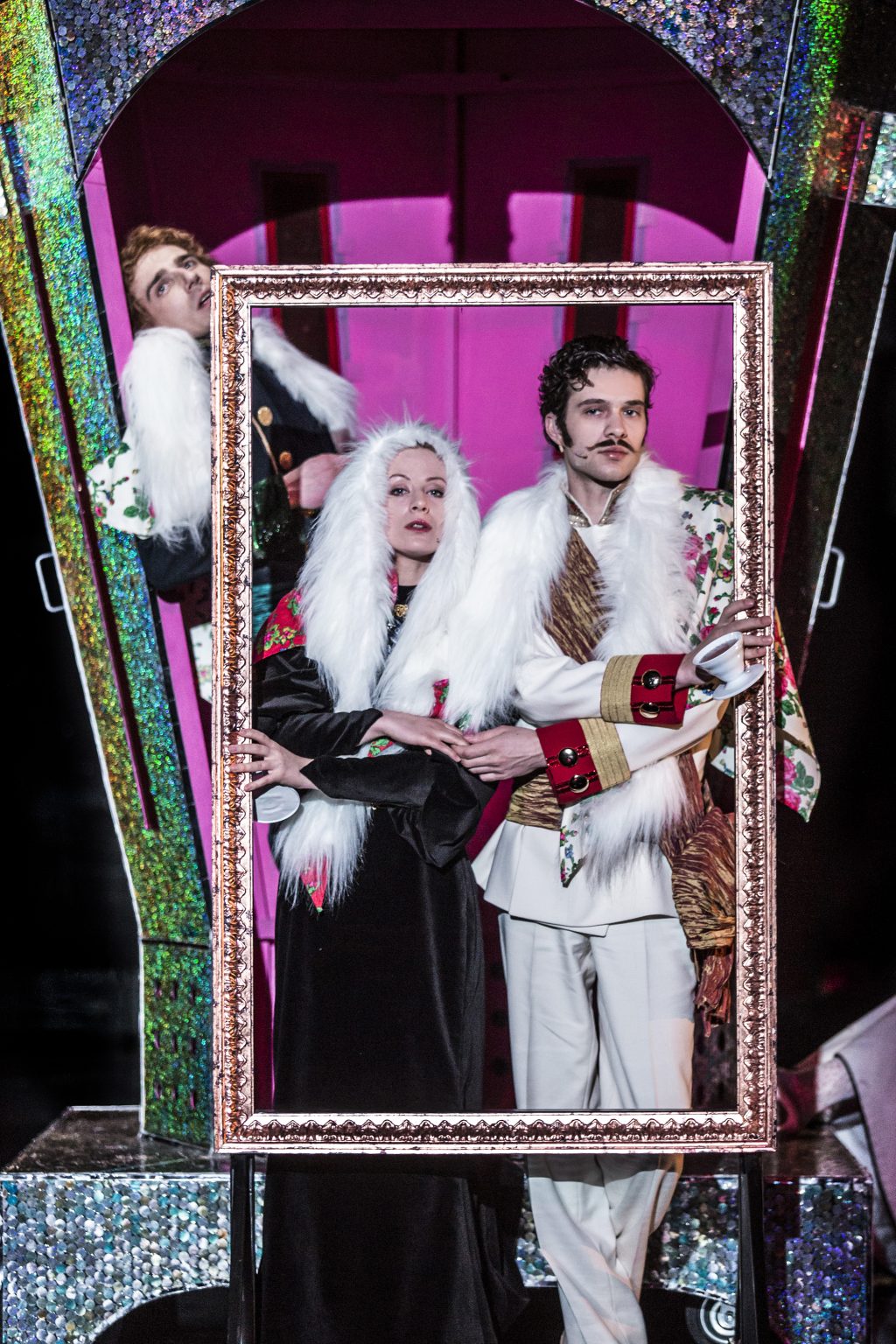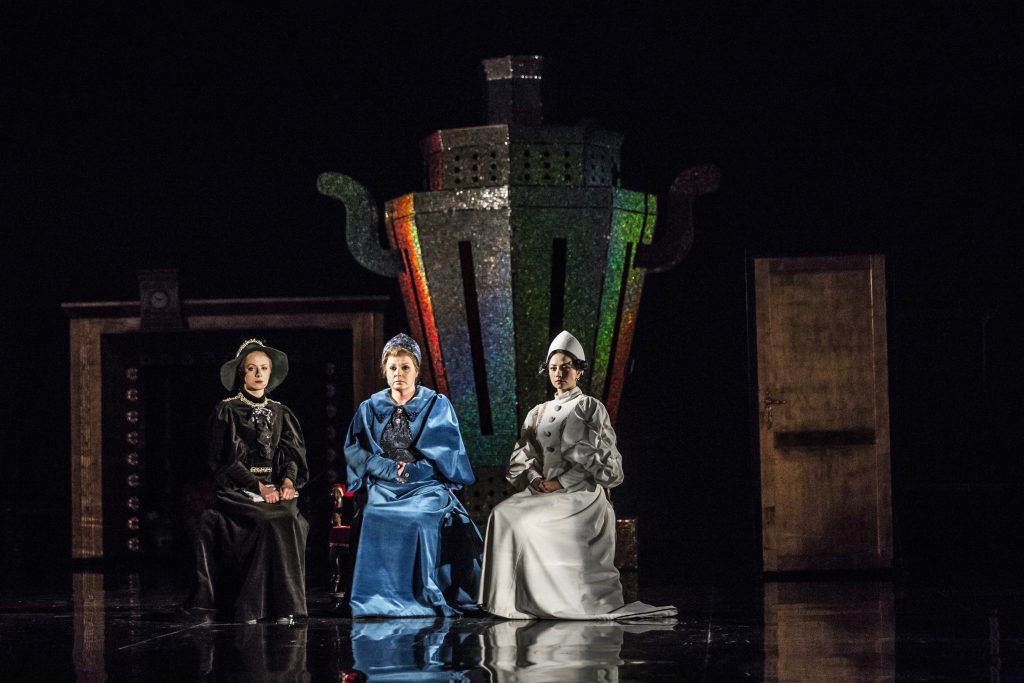Events
JULIUSZ OSTERWA THEATRE IN LUBLINTHREE SISTERS
Antoni Chekhov
TRANSLATIONAgnieszka Lubomira Piotrowska
DIRECTORJędrzej Piaskowski
DRAMATURGYHubert Sulima
STAGE SCRIPTJędrzej Piaskowski, Hubert Sulima
SET DESIGN / LIGHTSAleksander Prowaliński
COSTUMESHanka Podraza
MUSICJan Tomza-Osiecki
CHOREOGRAPHYKatarzyna Sikora
CASTMagdalena Sztejman, Lidia Olszak, Jolanta Rychłowska, Daniel Dobosz, Wojciech Rusin, Maciej Grubich, Paweł Kos, Daniel Salman, Janusz Łagodziński
PREMIERE9 March 2018
The protagonists of Three Sisters – Olga, Masha and Irina, daughters of a high-rank army officer, fantasise about a different life in Moscow which to them is the symbol of a better, utopian reality. The rhythm of their world is set by successive war interventions resulting in the arrivals and departures of the local garrison. In the background of the events described, lurks the upcoming war with Japan and the revolutions of 1905 and 1917. What is more, Chekhov’s characters are hindered by the sentimental and emotional conveniences they must obey. This timeless cliché of a drawing-room from the end of the 19th century produced numerous equally “universal” and clichéd interpretations of Czekhov’s plays.
The creators of the play desire to return to the intentions of the author. What really comes to the front in his works is the critical view of the contemporary socio-political situation and radical opposition to hypocrisy, the love of comfort and stupidity of the elites that do not appreciate the importance of their social role and the duties that it carries. Stuck in trivial, emotional problems, Chekhov’s characters hide behind the plans they never realised, outdated platitudes about the value of work and social equality. This highly critical gesture of the writer is conveyed through his love for humour, grotesque and satire, and through tampering with the tastes and expectations of the audience. Those are the elements of his work which have been surprisingly often overlooked by theatre productions of his plays to date.
The Russian Empire of the end of the 19th century – that is in its final years – was the sanctuary of a conservatism opposed to any kind of freedom movement which threatened the traditional, monarchical order of power. The political police and censorship tried to eradicate any signs of freedom movements critical of tsarism. The atmosphere of stagnation of the drawing-rooms of the Russian elites was a result of the comfort brought about partially by the stable economy, and to some extend also by the overwhelming feeling of powerlessness. The situation in Chekhov’s play is very similar.
Jędrzej Piaskowski prepared a grotesque but heavy-weight performance for the Osterwa Theatre. His Three Sisters is a play about the violence of fitting contemporary life into anachronistic forms. Is Chekhov coming back to the centre of Polish theatre? (…) The Russian classic returns not only as the expert on playing with stiff conventions, but also as the representative of a specific social reflection, often perceived as passé. Whereas, in fact, both American TV-series and young Polish musicians or Internet artists explore (no other than Chekhov’s) themes of failure, powerlessness and depression, the reverse side of the capitalistic cult of success, fulfilment and personal growth.
Witold Mrozek, Gazeta Wyborcza
At first it seems that we are dealing with a classic adaptation of Three Sisters, we hear dialogues taken straight out of the play, the actors are wearing period costumes and the only extravagant element is the colourful, symbolic stage design and the exaggerated acting style. With time, when the action progresses and more characters enter the stage, we realise it is a mockery. The director mocks our one and only right interpretation of Czekhov, right into our faces. He mocks our expectations towards institutional theatre and, first and foremost, our need to leave the performance with “something”. Piaskowski brings to the fore the characteristics that make the protagonists what they are, maximising these traits, exaggerating, showing his complete disregard for psychologism and nuances. Through these means he turns Chekhov into an unexpected grotesque satire, impossible to be taken seriously.
Ewa Jemioł, Dziennik Teatralny Lublin




